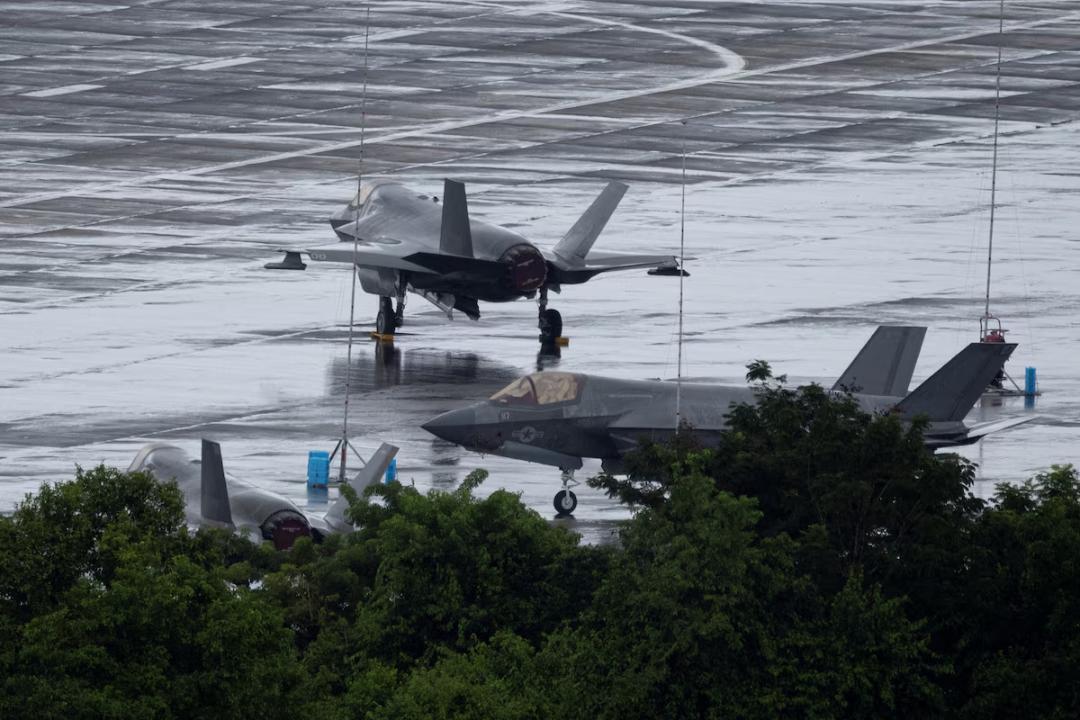
Trump Mulls F-35 Fighter Jet Deal with Saudi Arabia
In a recent statement, US President Donald Trump revealed that he is considering a deal to supply Saudi Arabia with F-35 stealth fighter jets. This potential sale has sparked interest and concern among defense experts, policymakers, and the general public. The F-35 is a cutting-edge, fifth-generation fighter jet developed by Lockheed Martin, and its export is subject to strict regulations and approval processes.
According to Trump, Saudi Arabia has expressed interest in purchasing a significant number of F-35 fighter jets. “They wanna buy a lot of jets…I’m looking at that. They’ve asked me to look at it. They want to buy a lot of ’35’, but they want to buy actually more than that, fighter jets,” he told reporters. This statement suggests that the Saudi government is eager to modernize its military capabilities and enhance its air power.
The potential sale of F-35 fighter jets to Saudi Arabia is a complex issue, with implications for regional security, US foreign policy, and the global arms trade. On one hand, the sale could strengthen the US-Saudi alliance and provide a significant boost to the Saudi military. On the other hand, it raises concerns about the potential for human rights abuses, the proliferation of advanced military technology, and the impact on regional stability.
Saudi Arabia has been a key player in the Middle East, and its military has been involved in various conflicts, including the ongoing war in Yemen. The country has faced criticism for its human rights record, particularly in relation to the treatment of civilians in Yemen. The sale of advanced fighter jets like the F-35 could potentially exacerbate the situation, allowing the Saudi military to carry out more effective and devastating airstrikes.
Furthermore, the export of F-35 fighter jets to Saudi Arabia could have significant implications for the regional balance of power. The F-35 is a highly advanced aircraft, with capabilities that surpass those of most other fighter jets in the region. The sale of this technology could potentially upset the balance of power, allowing Saudi Arabia to gain a significant advantage over its rivals.
Despite these concerns, the US has a long history of providing military aid and selling arms to Saudi Arabia. The two countries have a strong strategic partnership, and the US has been a major supplier of military equipment to the Saudi military. The potential sale of F-35 fighter jets is likely to be seen as a continuation of this partnership, with the US seeking to support its ally and maintain its influence in the region.
It is worth noting that the sale of F-35 fighter jets to Saudi Arabia would require approval from the US Congress. Lawmakers have expressed concerns about the potential sale, citing human rights abuses and the risk of destabilizing the region. The sale would also need to comply with strict export regulations, including the Arms Export Control Act and the Foreign Military Sales program.
In conclusion, the potential sale of F-35 fighter jets to Saudi Arabia is a complex and contentious issue, with significant implications for regional security, US foreign policy, and the global arms trade. While the sale could strengthen the US-Saudi alliance and provide a significant boost to the Saudi military, it also raises concerns about human rights abuses, the proliferation of advanced military technology, and the impact on regional stability. As the US considers this potential sale, it is essential to weigh the potential benefits against the potential risks and ensure that any decision is made with careful consideration of the long-term consequences.
The US has a responsibility to ensure that its military aid and arms sales do not contribute to human rights abuses or destabilize the region. The sale of F-35 fighter jets to Saudi Arabia should be subject to strict conditions, including guarantees that the aircraft will not be used to carry out human rights abuses or attack civilian targets. The US should also work to promote regional stability and encourage Saudi Arabia to engage in diplomatic efforts to resolve conflicts peacefully.
Ultimately, the decision to sell F-35 fighter jets to Saudi Arabia will depend on a range of factors, including the outcome of Congressional debates, the position of the US administration, and the response of other countries in the region. As the situation continues to unfold, it is essential to monitor developments closely and ensure that any decision is made with careful consideration of the potential consequences.
News Source: https://www.reuters.com/world/trump-likely-sell-f-35-fighters-saudis-bloomberg-news-reports-2025-11-14/




